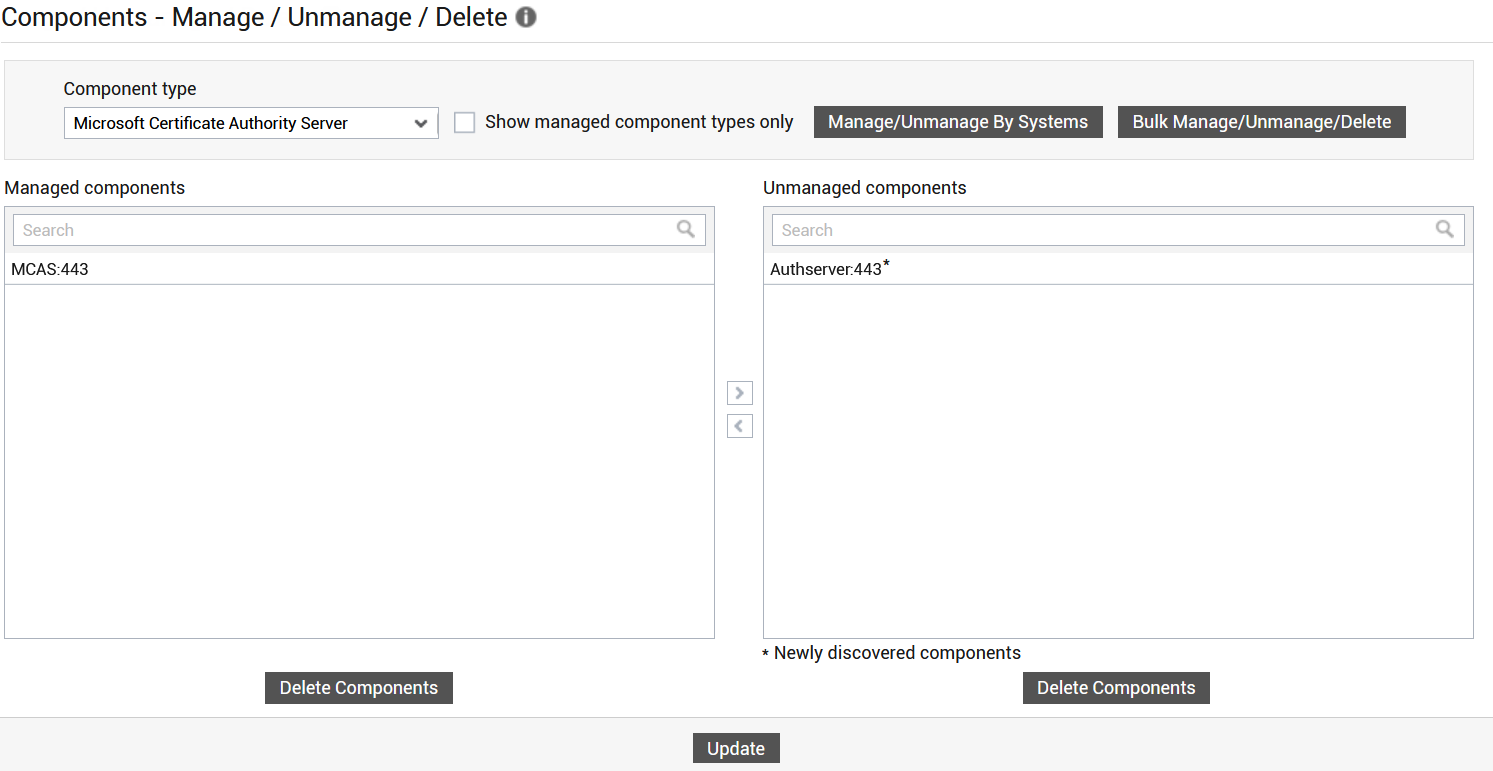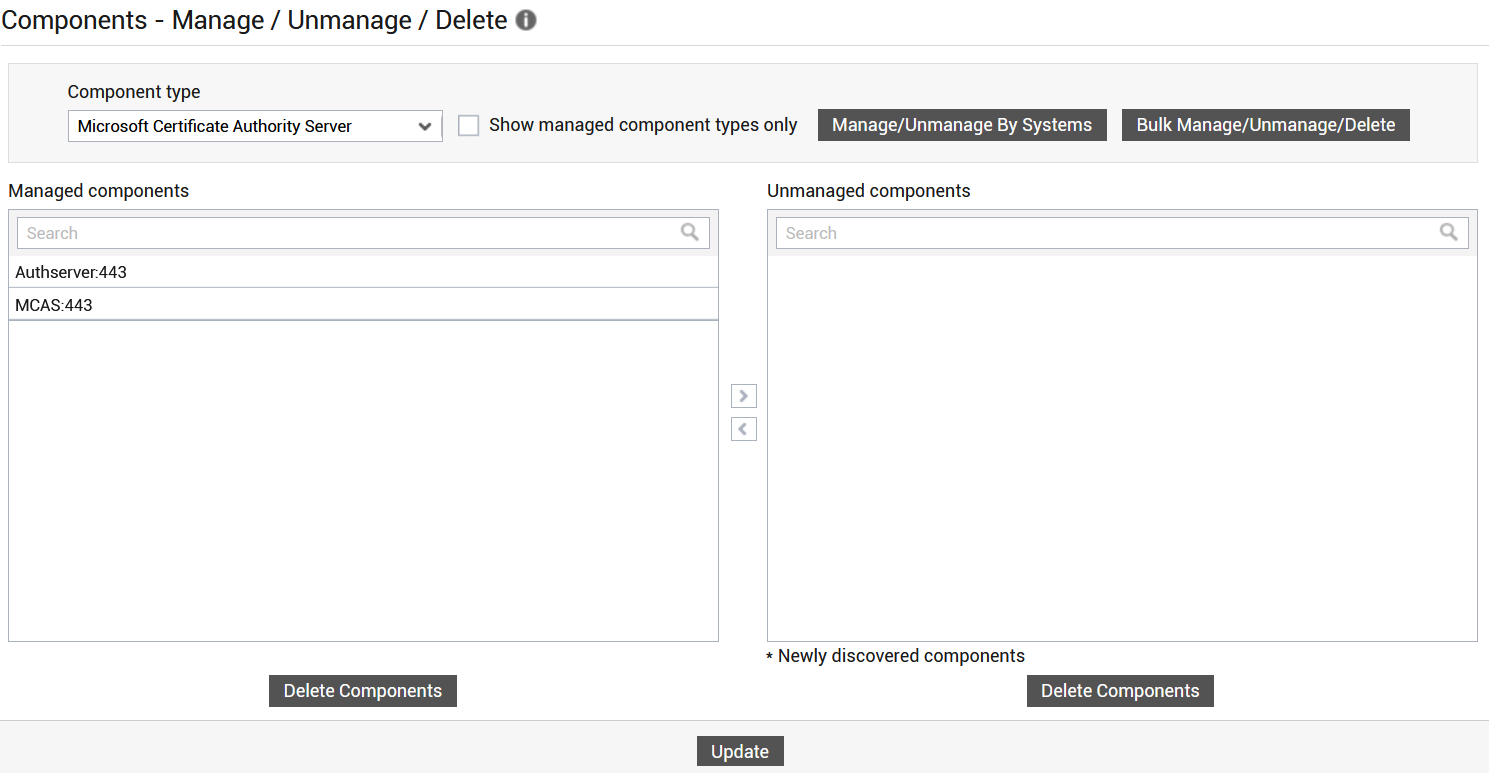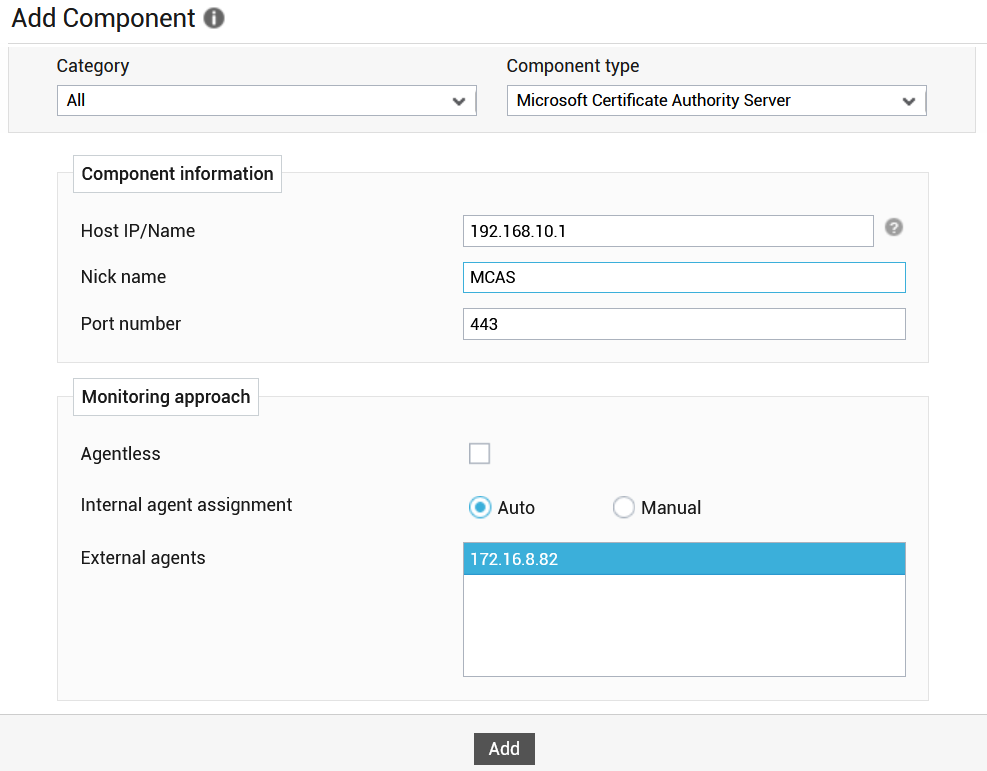Managing Microsoft Certificate Authority Server
Microsoft Certificate Authority Server can be automatically discovered by eG Enterprise on Port 443 using Port-based discovery. However, this is disabled by default. Administrators can either auto-discover the Microsoft Certificate Authority Server listening on port 443 in their environment or manually add the Microsoft Certificate Authority Server.
To manage the Microsoft Certificate Authority Servers that are automatically discovered, follow the steps below:
- Login to the eG admin interface.
- If the component is yet to be discovered, then, run discovery (Infrastructure -> Components -> Discovery).
- To manage an already discovered component, follow the menu sequence: Infrastructure -> Components -> Manage/Unmanage/Delete.
-
Figure 1 and Figure 2 clearly illustrate the process of managing a Microsoft Certificate Authority Server.

Figure 1 : Selecting the Microsoft Certificate Authority Server to be managed

Figure 2 : Managing the Microsoft Certificate Authority Server
-
Next, sign out of the eG administrative interface.
To add the Microsoft Certificate Authority Server manually to eG Enterprise, follow the steps below:
- Follow the Components -> Add/Modify menu sequence in the Infrastructure tile of the Admin menu.
- Next, select Microsoft Certificate Authority Server from the Component type drop-down and then click the Add New Component button.
-
When Figure 3 appears, provide the Host IP/Name of the Microsoft Certificate Authority Server that you want to manage.

- Then, provide a Nick name for the component.
- By default, the Port number will be set as 443. If the target Microsoft Certificate Authority Server is listening on a different port in your environment, then override this default setting.
- By default, the Agentless check box will be unchecked. The recommended monitoring approach to monitor the Microsoft Certificate Authority Server component is agent-based approach. Therefore, it is best to not alter the default setting. However, if you wish to monitor the target server in an agentless manner, the Agentless check box should be checked.
- By default, the Auto option will be selected against the Internal agent assignment field. This indicates that by default, eG Enterprise maps every configured IP/nick name with a separate internal agent. To manually define the IP-internal agent association, select the Manual option.
- Upon choosing the Manual option, an additional Internal agent list box will appear. From this list box, select the internal agent that needs to be associated with the IP of the component that is being added to eG Enterprise.
- Pick an external agent from the External agents list box and click the Add button to add the component for monitoring.